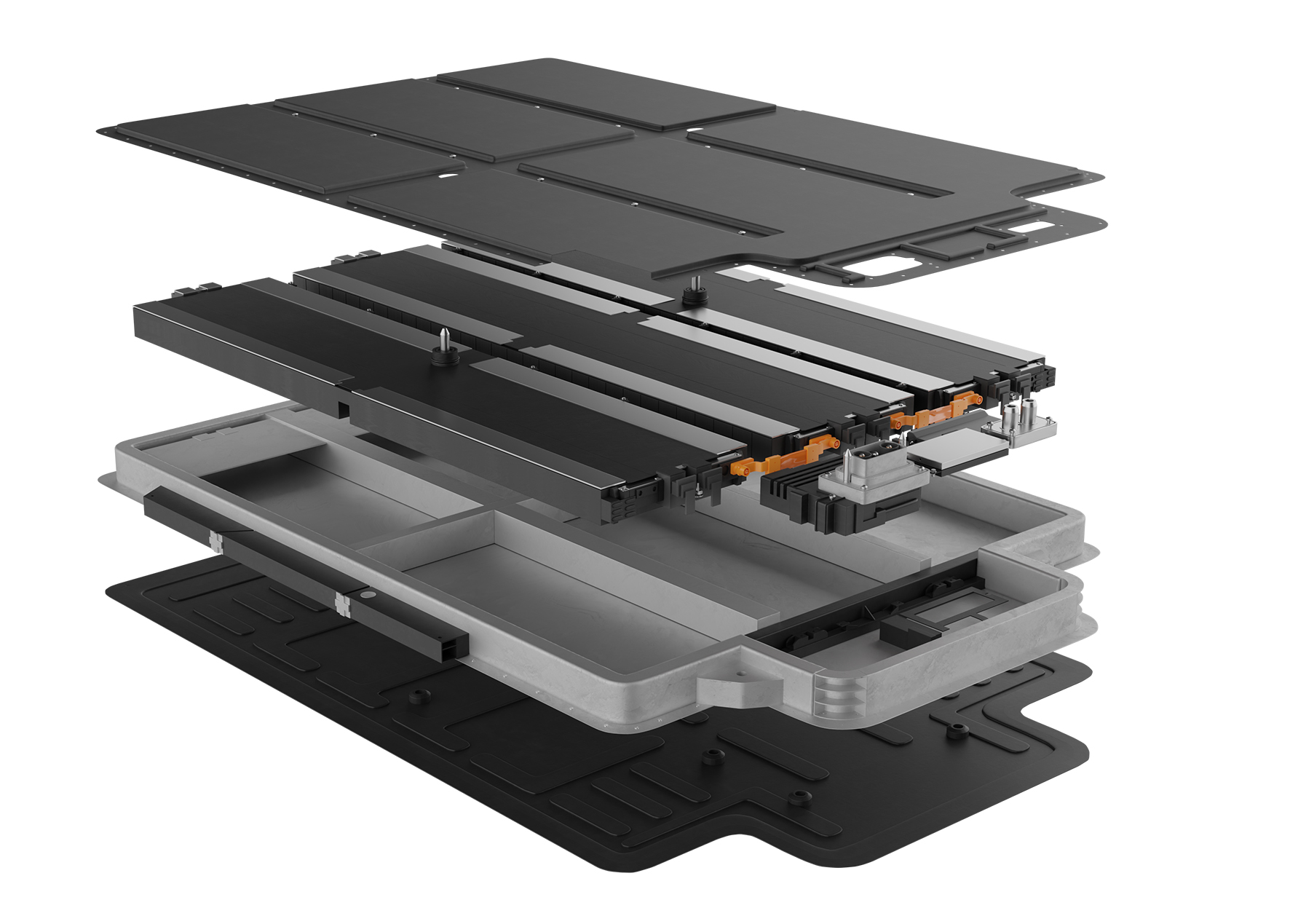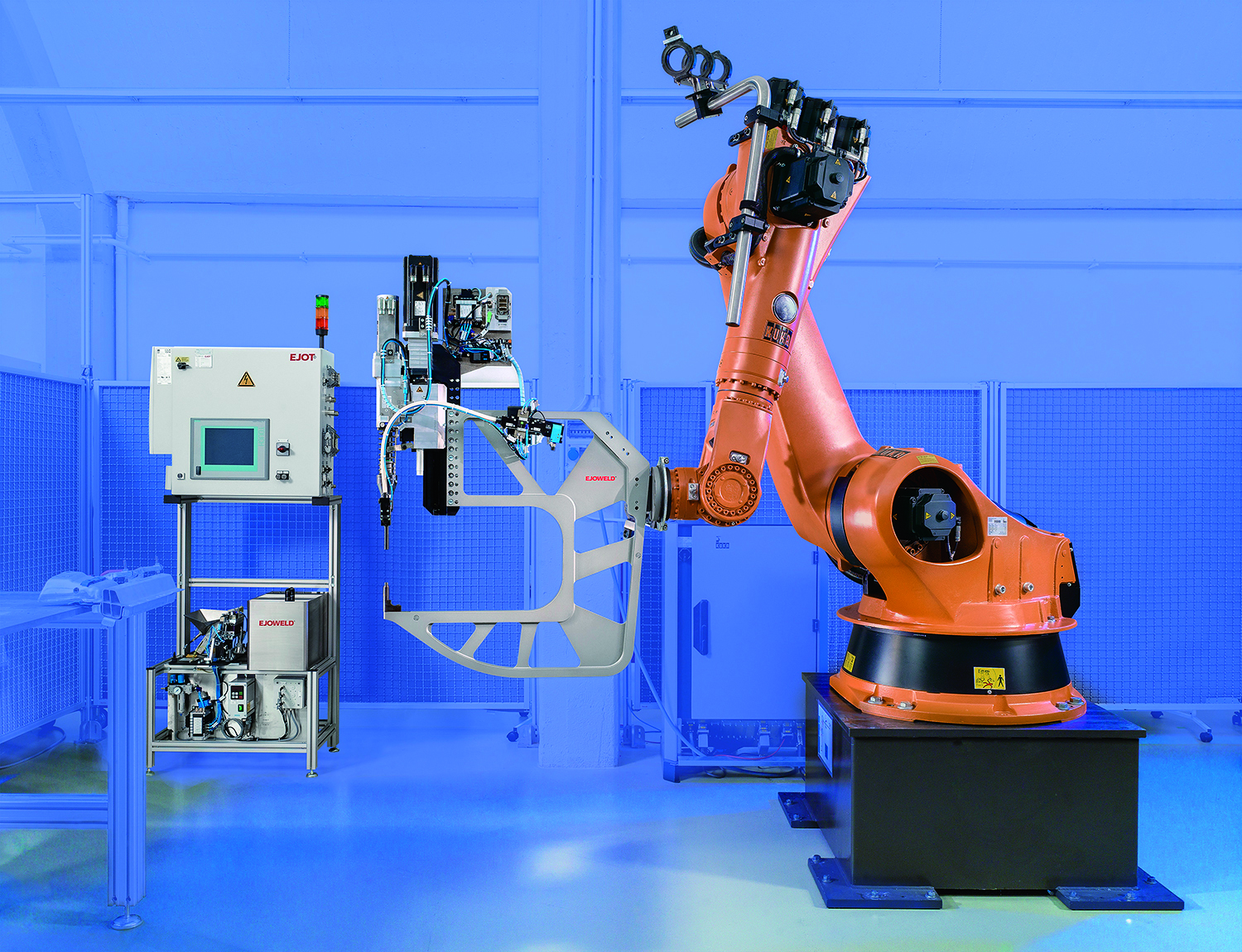
EJOT has been at the forefront of fastening systems for the automotive industry for several decades – with solutions that have always sought to bring design engineering and intelligent fastening together to help EV designers achieve better cost-efficiency and system performance. Here, EJOT UK Ltd outlines how its intelligent fastening systems are accelerating growth in the electric vehicle (EV) sector.
The rise of EVs
With around 23% of all new car sales in March 2024 being either fully electric or plug-in hybrids, it is clear that alternatives to ICE (internal combustion engine) power now represent a sizeable part of the market. Whilst policy and buyer incentives continue to be extremely influential in terms of how fast and how much the EV market will grow further in the coming years, technological advances by EV manufacturers are key to the sector’s evolution.
Those advances may go unnoticed by end users, but ultimately they are contributing to making the EV proposition more and more attractive. Retail costs, for example, are gradually reducing, thus increasing affordability particularly for private EV buyers, and their range and reliability is being enhanced with every new model or generation.Technological advancements in all aspects of the vehicle’s design and manufacture have been necessary to achieve the success to date, but there is still vast potential for further benefits to be realised by utilising the latest fastening systems.
Innovative fasteners are already enabling the use of thinner, lighter weight metals in the EV’s BIW (body in white) construction, as they have done for ICE-powered vehicles for decades, as well as component assemblies ranging from battery boxes and motors to seating and doors.
Reliable quality assurance
EJOT’s fastening systems fall into three main categories – joining metals, fasteners for thermoplastics and fastening into lightweight foams and composite materials. They all provide EV manufacturers with assured worldwide availability to Just-in-Time (JIT) principles and are designed for process reliable assembly with high degrees of purity and quality backed by a 0 PPM (parts per million) target.
As the fasteners themselves amount to around 20% of the total joint cost, that means the remaining 80% results from system costs. Hence why choosing the right fastener for assembly requires a focus on both the technical characteristics and capability of the product and its application efficiency.
Partnering with EJOT, therefore, helps to reduce system costs for the joint through higher efficiency and greater productivity. EV manufacturers can achieve this through early consultation with EJOT’s application engineers who work with designers and engineers from the conceptual stages, throughout the development and production process.
Innovative fastening solutions for joining metals
EJOT provides solutions for direct thread-forming into cast metals with the ALtracs® Plus and for joining thin sheet metals with SHEETtracs®. Both fastening systems are ideal for use in EV assembly because of the process efficiencies they offer, with the latter used for the assembly of pre-punched thin sheets with less than 1.5mm thickness and facilitating single sided assemblies with no pilot hole.
Another advanced EJOT fastening system that can be used in such applications in the automotive industry is EJOWELD. This friction weld system was developed in response to market demands for lighter vehicles and is capable of joining lightweight alloys to thin sheet boron steel of up to 1,800 megapascals. It expands the possibilities for material choices because it enables the joining of materials which cannot be secured by traditional methods.
Unlocking the potential of thermoplastics
The EJOT brand is renowned for joining thermoplastics in automotive applications, and today two key products offer great potential in the EV market.
The EJOT EVO PT® is the latest generation of thermoplastics screw from the originator of the PT line of screws. It offers performance benefits where an installation torque that remains virtually constant regardless of installation depths is required, which can be a distinct design advantage in key applications. Hence why using EVO PT® delivers performance benefits which can impact logistics inventory, simplify installation and deliver real time savings.
The second EJOT product for these materials can be deployed for joining both thermoplastics and thermoset plastics. The EJOT DELTA PT® features an original thread geometry that creates low surface pressure and provides a high clamp load.
Overcoming challenges with lightweight foams and composites
Given that a key objective is to reduce weight in EVs, designers have turned to super-lightweight engineering materials including EPP foams and those with sandwich type construction. Delivering high strength joints in these types of materials, however, can be a challenge, but it is one that EJOT is helping the automotive industry overcome through its multiple fastening systems which can be used in both manual and fully automated assembly.
One system which is already being used in EV assemblies is the unique EJOT TSSD®. This enables fast, low-cost assembly of honeycomb materials, specifically lightweight GFRP and CFRP. It utilises frictional heat, precisely calculated to create a partial fusion of the joining parts to deliver incredibly strong joints that, in most cases, eliminates the need for any pre-hole. The result is the potential for much faster assembly processes.
Another EJOT solution for materials in this category is the EJOT EPPsys RSD®. This is used for direct fastening in lightweight foam where high strength and system reliability in assembly are vitally important. The EJOT® EPP System provides designers with multiple solutions for assembly, typically to expanded polypropylene, but also other non-metal materials.
Bringing it all together
As these EJOT fastening solutions demonstrate, EV designers have at their disposal a wide variety of innovative products that help to unlock the potential for using different materials and processes. These can give their vehicles a competitive advantage through higher quality and more efficient manufacturing.
Early consultation with EJOT, including the use of its design and calculation tools, can help streamline the process further. These tools are part of a total support package which includes the services available at its state of the art R&D and testing facility – the Applitec Centre. This is a hub for innovative thinking and a comprehensive test bed for products and assemblies in the conceptual phase, giving EJOT’s fastener specialists a unique resource to work with engineering design teams to arrive at successful solutions.
Find out more about EJOT’s fastening solutions for electric vehicles here:
EJOT Electric Vehicle Technology

Becca is the latest member to join our team and is eager to get stuck into the world of fasteners. She brings an enthusiastic and fresh outlook on what we do editorially and will be leading our social media activity – including sourcing material, editing articles and posting online.
Don't have an account? Sign Up
Signing up to FastFixTechnology.com enables you to manage your account details.